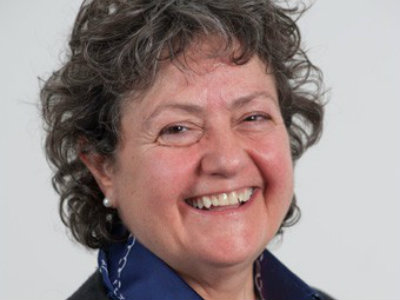
The government’s proposed list of skills that adults’ social workers should have achieved in their first year risks placing unrealistic expectations on new practitioners, according to the British Association of Social Workers.
The skills statement, drafted by chief social worker for adults Lyn Romeo, sets out what social workers in adult services need to know and be able to do at the end of their first year of employment.
Among the expectations set of practitioners at the end of their first year’s were completing assessments independently, starting from the perspective of service users’ desired outcomes; working within legal frameworks including the Mental Capacity Act, Mental Health Act and Care Act; and having developed confidence in multidisciplinary settings.
A consultation on the draft statement closed last week.
Experience influenced by setting
BASW’s consultation response expressed concerns that many social workers may not be able to achieve the knowledge and skills outlined by Romeo in their first year of practice and possibly over a longer period of time. This is because the expertise they would develop, and the opportunities to gain practical experience in areas such as learning disabilities, dementia care and personal budgets, would vary depending on the agency and team they worked in, BASW said.
“There is concern that maybe some social workers will be deemed not to meet the standards because of a relatively narrow job focus,” said BASW’s response.
“We [also] have concerns that a lot will be down to interpretation as to whether people would sufficiently meet the range of requirements of the statements. For example one of our members who is an assessor for ASYE (the assessed and supported year in employment) states that he ‘has yet to come across a candidate with sufficient experience in personal budgets to meet the requirements of this document’,” it added.
BASW also raised significant concerns that social workers who were not working in the statutory sector would have fewer opportunities to meet the requirements drafted by Romeo that relate closely to statutory social work. The association also argued that Romeo’s statement was inconsistent with a similar skills statement for social workers in children’s services.
The College of Social Work response
The College of Social Work’s (TCSW) consultation response said that inconsistencies between the skills statements for adult and children’s social workers must be addressed. It also said that both skills statements should be more closely linked to the Professional Capabilities Framework, which also sets expectations of social workers at the end of their first year.
“The need for consistency is becoming even more crucial as an increasing number of local authorities are employing children and families and adult social workers within the same department or directorate. Organisational and professional confusion is likely to result if there is little coherence between and across the two [statements],” the TCSW response said.
“Equally important is the need to make sure that the [statement] for adults (and for children and families) is connected to the Professional Capabilities Framework so that the profession, employers and other stakeholders have one coherent framework setting out expectations and standards.”
Quality assurance
TCSW called for Romeo’s statement not to lose sight of the fact that many newly qualified social workers may work in the voluntary and independent sector. It also recommended that the list of skills required of new social workers should be more outcomes-focused.
Romeo’s statement also set out proposals for a standardised national assessment that all newly qualified social workers working in adult services should undergo at the end of their ASYE. The proposals, which would be validated by TCSW, aim to improve the quality assurance of social work education.
TCSW said it welcomed the plans for a national quality assurance system for ASYE as it was concerned that there was a gap in the ability to monitor the quality of the employer assessment and support currently provided. TCSW said it was vital that any scheme developed has the confidence of the whole profession.
The Department of Health said Romeo would be issuing an official response to the consultation in early 2015.


 A trauma-informed approach to social work: practice tips
A trauma-informed approach to social work: practice tips  Problem gambling: how to recognise the warning signs
Problem gambling: how to recognise the warning signs 




 Find out how to develop your emotional resilience with our free downloadable guide
Find out how to develop your emotional resilience with our free downloadable guide  Develop your social work career with Community Care’s Careers and Training Guide
Develop your social work career with Community Care’s Careers and Training Guide  ‘Dear Sajid Javid: please end the inappropriate detention of autistic people and those with learning disabilities’
‘Dear Sajid Javid: please end the inappropriate detention of autistic people and those with learning disabilities’ Ofsted calls for power to scrutinise children’s home groups
Ofsted calls for power to scrutinise children’s home groups Seven in eight commissioners paying below ‘minimum rate for home care’
Seven in eight commissioners paying below ‘minimum rate for home care’
 Facebook
Facebook X
X LinkedIn
LinkedIn Instagram
Instagram
We all know thatchildrens andadults social work are completely different jobs and trying to stuff them into one bureacratic mould is silly. Ive never worked in ld and never wanted to, why should I have demonstrate any special skill in that area? The social work establishment is a waste of time.